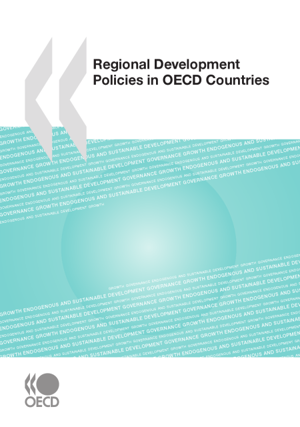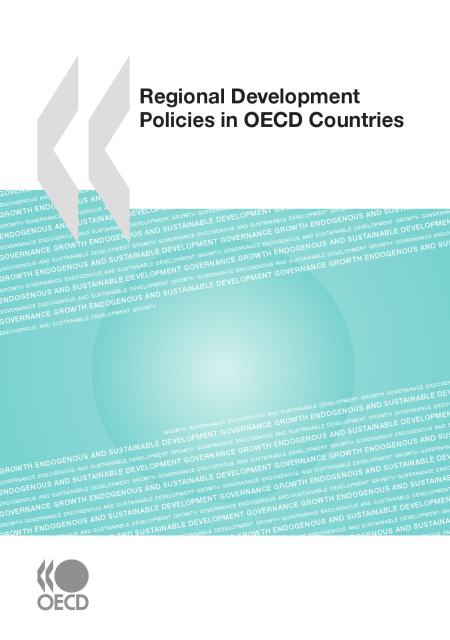
- Retrait gratuit dans votre magasin Club
- 7.000.000 titres dans notre catalogue
- Payer en toute sécurité
- Toujours un magasin près de chez vous
- Retrait gratuit dans votre magasin Club
- 7.000.0000 titres dans notre catalogue
- Payer en toute sécurité
- Toujours un magasin près de chez vous
Description
Policy makers need both a handy reference guide to the regional policies of their own and other countries and a broader analysis of trends in regional policies, based on sound, comparable information. Regional Policies in OECD Countries responds to this need. It is the first systematic, comparative analysis of OECD countries’ regional policies.
The report addresses fundamental regional policy concerns, such as: problem recognition; the objectives of regional policy; the legal/institutional framework; the urban/rural framework; budget structures; and the governance mechanisms linking national and sub-national governments as well as sectors.
It begins with an overview of the regional policy today. This is followed by country profiles covering the 31 OECD members. The profiles share a common conceptual framework, allowing countries to see how their experiences measure up. The report also contains several annexes, which cover some of the countries that are candidates for accession to the OECD or with which the OECD has enhanced engagement. The annexes also cover the key topics of cross-border cooperation and trends in urban-rural linkages, especially efforts to control urban sprawl.
The report will help countries to better understand regional policies and to formulate and diffuse horizontal policy recommendations. The analysis suggests an important role for regional policies in shaping sustainable endogenous development, in particular well-developed governance mechanisms to better respond to the different opportunities and demands of regions and to improve policy efficiency.
This report is a unique source of regional policy information and of special interest to policy makers, researchers, and others engaging with regional development.
Related reading
Regions Matter
OECD Regions at a Glance 2009
How Regions Grow: Trends and Analysis
Spécifications
Parties prenantes
- Auteur(s) :
- Editeur:
Contenu
- Nombre de pages :
- 384
- Langue:
- Anglais
Caractéristiques
- EAN:
- 9789264087255
- Date de parution :
- 27-09-10
- Format:
- Ebook
- Protection digitale:
- Digital watermarking
- Format numérique:

Les avis
Nous publions uniquement les avis qui respectent les conditions requises. Consultez nos conditions pour les avis.






